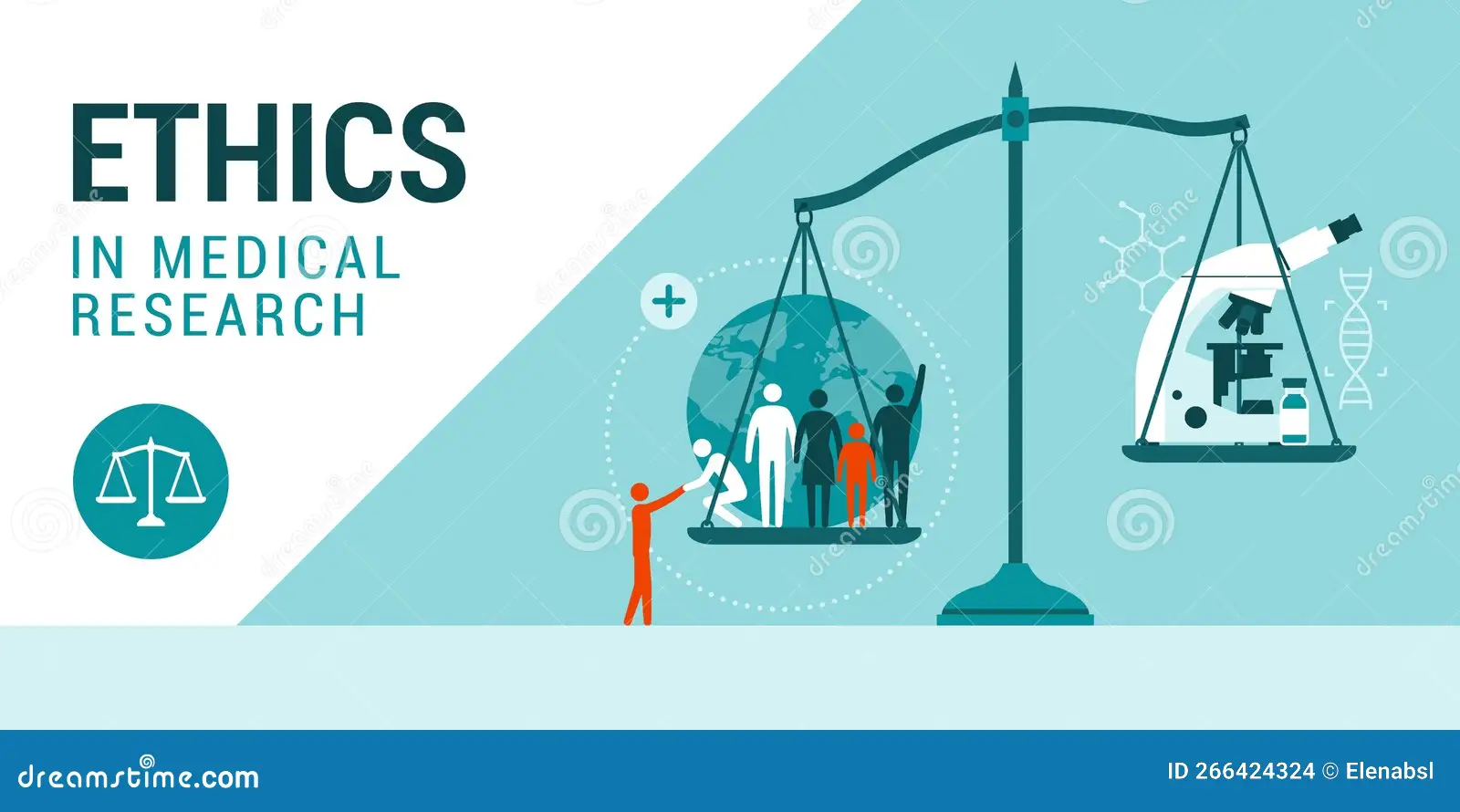
Ethics in Clinical Research: Balancing Science and Humanity
Clinical research is the foundation of medical progress, but it must be conducted with the utmost ethical integrity to protect the rights, dignity, and welfare of participants. Balancing the pursuit of scientific knowledge with the principles of humanity is a complex but essential aspect of clinical research. Ethical considerations serve as a guiding framework to ensure that research benefits society without compromising individual well-being.
Why Ethics Matter in Clinical Research
Ethics in clinical research are critical because:
- Participants voluntarily expose themselves to risks for the advancement of science.
- Vulnerable populations may be disproportionately affected if ethical safeguards are not in place.
- Unethical research can lead to harm, mistrust, and a loss of credibility in the scientific community.
The foundation of clinical research ethics lies in guidelines like the Declaration of Helsinki, Belmont Report, and adherence to Good Clinical Practice (GCP) standards.
Key Ethical Principles in Clinical Research
- Respect for Persons:
- Acknowledges the autonomy of participants.
- Informed consent is essential, ensuring that participants understand the purpose, risks, and benefits of the study.
- Beneficence:
- Researchers must maximize potential benefits and minimize harm to participants.
- The safety and well-being of participants are prioritized throughout the study.
- Justice:
- Fair distribution of the benefits and burdens of research.
- Avoid exploitation of vulnerable populations, such as children or economically disadvantaged groups.
- Non-Maleficence:
- Ensures that no harm is inflicted intentionally or through negligence.
Common Ethical Challenges in Clinical Research
- Informed Consent:
- Ensuring participants fully understand the study’s purpose, risks, and potential outcomes.
- Overcoming language, literacy, or cultural barriers in diverse populations.
- Participant Safety:
- Balancing the potential risks of experimental treatments with their possible benefits.
- Addressing adverse events promptly and transparently.
- Confidentiality and Privacy:
- Protecting sensitive participant data from unauthorized access or misuse.
- Complying with data protection regulations like GDPR or HIPAA.
- Conflict of Interest:
- Managing situations where researchers or sponsors may have financial or professional stakes in the study’s outcomes.
- Inclusion and Equity:
- Avoiding the exclusion of certain groups, such as women, minorities, or older adults, unless scientifically justified.
Ensuring Ethical Research Practices
To maintain high ethical standards in clinical research, the following practices are essential:
- Ethics Committee Oversight: Institutional Review Boards (IRBs) or Ethics Committees review and approve study protocols to ensure compliance with ethical guidelines.
- Regular Monitoring: Continuous oversight of the study ensures adherence to ethical and regulatory standards.
- Transparency: Sharing trial results openly, regardless of positive or negative outcomes, builds public trust.
- Training and Education: Ensuring that researchers and staff are trained in ethical principles and practices.
Balancing Science and Humanity
The ultimate goal of clinical research is to improve health outcomes while respecting the rights and dignity of participants. Striking the right balance between advancing science and safeguarding humanity requires:
- A commitment to ethical principles.
- Transparent communication with participants.
- Vigilant oversight of trial procedures and outcomes.
Conclusion
Ethical considerations in clinical research are not just formalities but fundamental responsibilities that ensure the integrity of scientific advancements. By adhering to these principles, researchers honor the humanity of their participants while fostering progress that benefits society as a whole. Balancing science and ethics is the key to building a future where innovation and compassion coexist.


























































